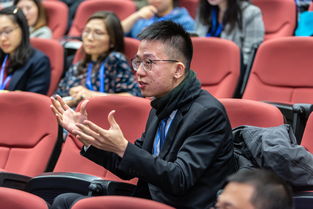Contemporary online literature, also known as web novels or web fiction, refers to literary works that are published and accessed primarily on the internet. With the rapid development of online platforms and digital technology, online literature has become increasingly popular, gaining a wide readership and significant influence.
The translation of contemporary online literature from Chinese to English presents several challenges and considerations:
Language and Cultural Nuances
One of the primary challenges in translating contemporary online literature is capturing the nuances of language and culture. Online literature often reflects contemporary slang, internet language, and cultural references that may not have direct equivalents in English. Translators need to carefully consider the cultural context and find appropriate ways to convey the original meaning while ensuring that the text remains accessible to Englishspeaking readers.
Literary Style and Genre Conventions
Contemporary online literature encompasses a wide range of genres, including fantasy, romance, science fiction, and more. Each genre comes with its own set of conventions and stylistic elements. Translators must be familiar with the expectations and tropes of these genres in both Chinese and English literature in order to effectively convey the intended tone and style of the original work.
Reader Engagement and Expectations
Online literature often thrives on reader engagement, with authors frequently interacting with their audience and incorporating reader feedback into their work. Translating this dynamic aspect of online literature into English may require additional contextual explanations or adaptations to ensure that Englishspeaking readers can appreciate the interactive nature of the original work.
Translating Technology and InternetRelated Terms

Many contemporary online literary works contain references to technology, social media, and internet culture. Translators need to navigate the translation of these terms in a way that is both accurate and relevant to Englishspeaking audiences, taking into account the rapidly evolving nature of technology and online platforms.
1. Bilingual Proficiency and Cultural Competence
Translators should have a strong command of both Chinese and English, as well as a deep understanding of the cultural contexts reflected in the original online literature. This ensures the accurate transfer of linguistic and cultural nuances into the translated work.
2. Collaborate with Authors and Editors
Whenever possible, translators should collaborate with the original authors and editors to gain insights into the intended meanings, cultural references, and stylistic choices present in the online literary work. Direct communication can help clarify ambiguities and maintain the integrity of the original text.
3. Adapt to the Target Audience
Translators should consider the preferences and cultural references of the Englishspeaking audience while preserving the essence of the original work. This may involve making thoughtful choices to convey the original tone and style in a manner that resonates with the target readership.
4. Stay Informed about Language Evolution
Given the rapidly evolving nature of internet language and technology, translators should stay informed about the latest linguistic trends and technological advancements in both Chinese and Englishspeaking communities. This knowledge will inform the translation of contemporary online literary works in a way that feels current and relevant.
Translating contemporary online literature from Chinese to English requires a nuanced understanding of language, cultural references, and genrespecific conventions. By maintaining a focus on preserving the original essence of the work while adapting it for Englishspeaking audiences, translators can bridge the gap between cultures and offer readers access to a diverse and vibrant world of online literary creativity.
版权声明
本文仅代表作者观点,不代表百度立场。
本文系作者授权百度百家发表,未经许可,不得转载。











